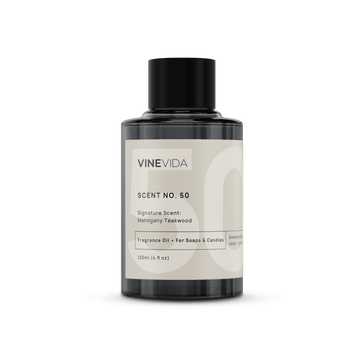June 15th is World Elder Abuse Day. How tragic is that? Treating the elderly is so widespread that it requires its own day.
Elder abuse is an endemic problem, existing in both developed and developing countries. It is a taboo subject, which sadly has a global problem of under-reporting. Although the extent of elder mistreatment is unknown, it’s thought to range between 1-10% of the elderly are poorly treated. The social and moral significance of this are obvious.
It’s rarely a deliberate action, of course. Lack of care can come from neglect or even cases of loneliness. We are all busy, areing for the elderly is an enormous amount of work. There are places that aromatherapy can be helpful in ways that can make an elderly person’s life a little better. But at the core of it though, is the compassion and care required to take action and give these overlooked parts of society a little consideration.
Dementia
One in fourteen people over the age of 65 have dementia, and the condition affects 1 in 6 people over 80. What’s more, as people now live longer, thanks to medical innovation, that number will only increase.
It’s a cruel disease for both patients and carers alike. Affecting not only memory but also behavior, depression and anxiety are common, as well as aggression and confusion. As the condition advances, spitting, disrobing and violence are not uncommon.
Apart from music, I can’t think of anything so effective at helping people travel through time as fragrance. Interestingly, research now shows that the memories we are most likely to retain are related to the first ten years of life, and that is most likely so when related to scent.
Aroma is a wonderful aid to memory, particularly those fragrances that relate to food. Cinnamon for Christmas, oranges for summer, lavender for grandparents.
No need to only rely on Essential Oils either, get the loved ones involved in baking bread, warm hot chocolate and biscuits. Smell old perfumes, dusty old books and furniture polishes.
Try to paint pictures with scent, if you can. Their ability to be able to name the fragrance isn’t important. It is more about the feeling that the smell invokes.
Where does baby powder on their hands take them? The smell of roses, or what about hair spray?
Try to match their surroundings to it. Peeling a juicy orange works really well out in the sunshine with warmth on your face. Is there music that goes with the fragrance? Boot polish and “Tipperary”, “Happy Birthday” and cake.
Fragrant Face Cloths
There is a lot of research being done into which essential oils can help dementia most. A lovely trial showed that Melissa officinalis can help reduce agitation, insomnia and some of the negative behaviors associated with dementia.
Oils like Lavender and Chamomile are soothing and calming.
Frankincense is reassuring and comforting.
To make a fragrant, add one drop of oil to a bowl of warm water. Soak the face cloth and wring out well. Allow your loved one to inhale the oil to uplift and reassure them.
Hand massages
These are also really beautiful. I like to use a blend of Melissa and lavender in a lotion to do mine. There are instructions on how to do a hand massage here. Melissa Essential Oil does not age well. Make sure you do not use old oils as it can easily irritate delicate skin. Use a tiny dilution of Melissa Essential Oil. Not more than 0.4% dilution. For ease, one drop in a tablespoon of lotion. You can use more Lavender, of course (See below).
Diffusers
Diffusers can be a gorgeous way to calm your loved ones when they are agitated. Oils like Sandalwood, Geranium and Palmarosa are all gentle and soothing.
Be aware though, that they should only be used for short amounts of time. Turn them off after about an hour to ensure you don’t sensitize them to the smell. Sensitization can cause headaches and nausea.
Rheumatism and Arthritis
It always seems boring to say lavender for pain, but the truth is nothing else comes close. Juniper is great for detoxifying the joints. Black pepper supports healthy circulation. Frankincense restores elasticity to connective tissues.
For rheumatism, I find aqueous lotion works best. You can buy it over the counter in the pharmacy. It strokes in easily and does not leave a greasy residue.
For arthritis, adding essential oils to an ointment base can be more effective.
A note on dilution though. Where normally we would use 3% dilution for an adult, if your loved one is frail, or in a weakened state 2% dilution will be ample.
Skin Healing
Skin tears are a real problem in the elderly, causing very high hospital admission rates and slow skin healing times. Sone are unavoidable resultant from injuries, but in many cases friction from sheets can be avoided by good moisturizing and emollients.
Skin is an organ made up of many tiny building blocks. These cells are held together by lipids. The lipids act like the mortar to the blocks. When they dry out, skin becomes flaky and brittle.
Lipids are essentially fats, so we can use carrier oils to lubricate and care for the skin.
I find the best way of doing this is to mix a teaspoon of carrier oil into 1 oz of aqueous lotion.
The most nourishing oils are apricot kernel which has a particular affinity to more mature skins, Argan and Rosehip Oils. If there is a tendency toward eczematous skin, then Tamanu Oil can also be helpful.
Use all one carrier oil or blend several together to layer properties and effects.
Myrrh, Galbanum and Helichrysum essential oils will all support healthy wound healing.
Please spare a thought for the elderly today and try to think of a way you could make someone very happy with your care.














